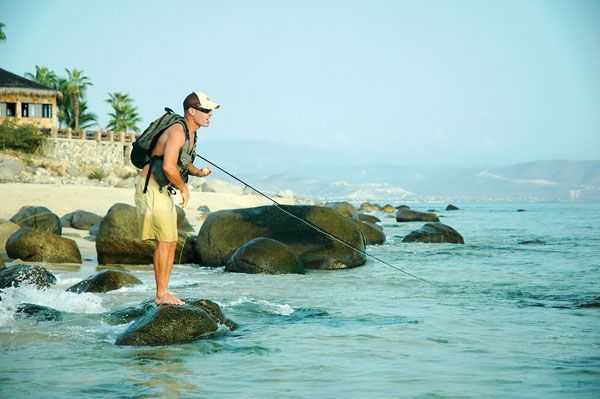In saltwater fly fishing there are many situations where the fly needs move as quickly as possible through the water to spark the interest of a game fish.
There are many saltwater fish that react to the fly that is stripped as fast as possible: the tuna, barracuda, roosterfish, amberjack and yellowtail are good examples. These guys prefer a fly that moves like an Indianapolis race car. If the fly isn’t imitating a fleeting baitfish, and suddenly stops, these games fish will often turn and swim away.
The two-handed strip is the perfect retrieve for situations dealing with these babies; this retrieve enables the fly to be stripped through the water without breaks or pauses, as happens with the conventional one-handed strip. There is one other advantage to using this retrieve: because the rod is placed under the arm rather than in the hands making its almost impossible to lift the rod tip on a strike; therefore your fish is hooked with a strip-strike negating the need for a lift of the rod tip and lifting the rod tip in mast saltwater fly fishing hook setting situations results in not hooking the fish.
For a successful two-handed strip do the following:
- After the fly has been cast place the rod under the arm (right or left).
- Point the rod tip down, keeping the tip on the water at all times.
- Begin the strip by pulling the fly line with your hand at the first stripping guide.
- Repeat this with the other hand.
- There should be a continual motion, changing hands with each strip.
- Vary the speed of the fly as you strip it through the water.
- Strip the fly all the way to the boat and repeat; and if you feel a strike give your line a solid strip-strike.
This is a great technique for blue water as well as near-shore fly fishing.
[easy-social-share]
